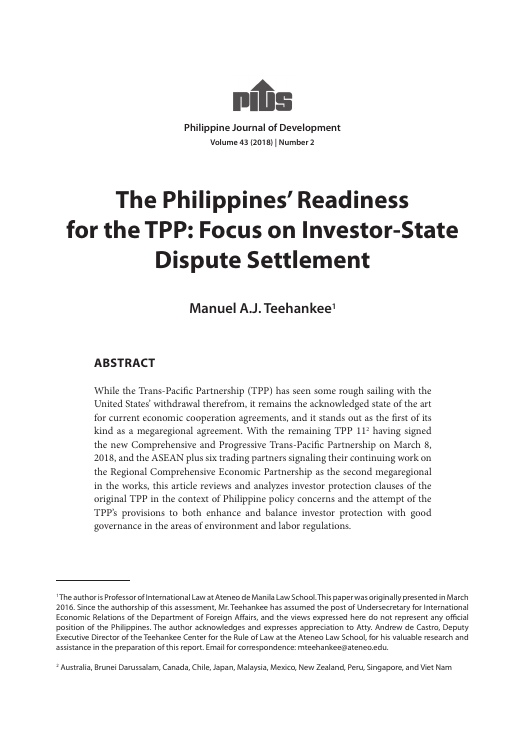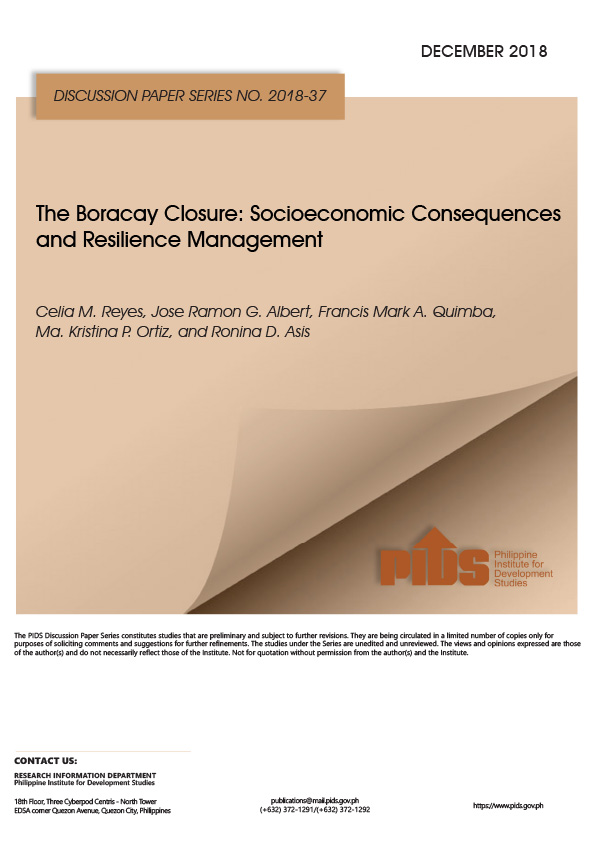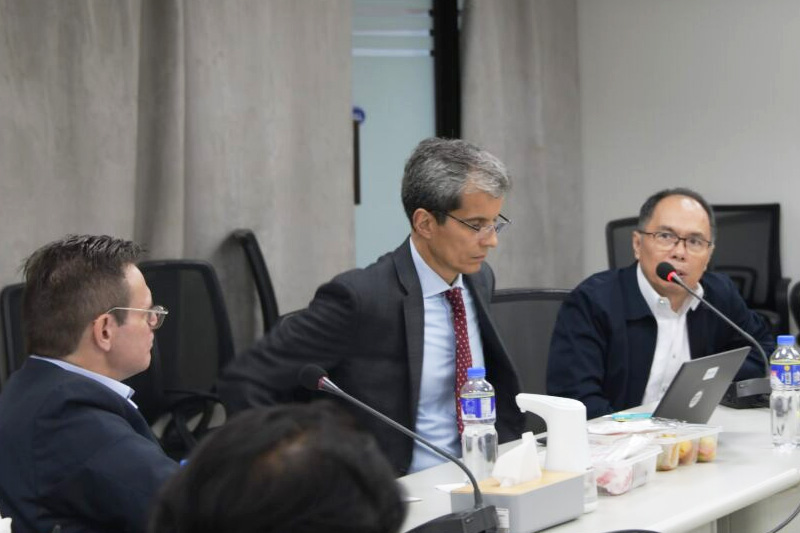THE closure of a major media company in the Philippines may discourage potential investors from bringing their business to the country, jeopardizing a quick economic recovery after the pandemic, experts and business groups said on Wednesday, after regulators forced ABS-CBN to stop airing its radio and television programs.
On Tuesday afternoon, the National Telecommunications Commission (NTC) issued a cease-and-desist order against ABS-CBN, citing the expiration of its broadcasting franchise on May 4.
Local economists like Calixto V. Chikiamco told the BusinessMirror that the closure of ABS-CBN is “the wrong signal” from the government at this time when the country is grappling with a health crisis.
“Together with Panelo’s hints about the declaration of martial law, the closure of ABS-CBN reinforces the threats to press freedom and will surely frighten investors, further dimming the prospects of an economy already reeling from the lockdown,” Chikiamco said on Wednesday.
Chikiamco said one indication would be the uptake of ABS-CBN stocks. But, on Wednesday, a trading halt on ABS-CBN Holdings Corp. was imposed.
Prior to the NTC order, ABS-CBN shares closed at P17.50 apiece. This was a steady improvement from the average of P15 per share early this year.
“It sends the wrong signal at a time when the country is preoccupied with fighting the epidemic,” Chikiamco said. “[It’s] not just a matter of pulling out investments, but [investors] not investing here.”
Brutal timing
Philippine Institute for Development Studies (PIDS) senior research fellow Jose Ramon G. Albert also lamented the “untimeliness” of the NTC order.
Albert said from a social perspective, there are 11,000 people who are now jobless. This will complicate the problems of the government, which is hard put helping millions of workers impacted by the Covid-19 pandemic.
The government has been providing for basic food needs of families now under lockdown in various areas, including Metro Manila.
“For 11,000 people and their families, it creates headaches as they will not be able to get any social protection,” Albert said. “Clearly it creates more problems than solutions.”
Albert also raised questions regarding the granting of franchises by the legislature. He said it may be time to consider the granting of franchises a regulatory function rather than a legislative one.
Lawmakers’ duty
Lawmakers should do their part in ensuring that the freedom of the press is safeguarded—and especially at a time of crisis like this—by acting on the bills filed to renew the franchise of one of the country’s largest media outfits, industry leaders argued on Wednesday.
Legislative-Executive Development Advisory Council Private Sector Representative George T. Barcelon finds it unfortunate that the government ordered ABS-CBN Corp. to stop airing TV and radio programs. He said the broadcasting giant, as with any media institution right now, is vital in the delivery of news on the pandemic.
Barcelon added this could have been prevented if state officials were clear with how ABS-CBN can stay on air. However, with the Department of Justice (DOJ), National Telecommunications Commission (NTC) and the leadership of the House of Representatives sending mixed signals, the shutdown was bound to happen.
The NTC on Tuesday instructed ABS-CBN to halt the operations of its TV and radio stations, which the network complied with by signing off all of its media channels in the evening.
The NTC was supposed to be ABS-CBN’s alternative as indicated by the House leadership and the DOJ, both of which suggested that the network can secure a provisional authority (PA) from the regulator absent a new franchise. Under oath at a congressional hearing in March, NTC officials said they would grant that PA to the network so it can operate while the franchise application pends in Congress, which was bound for a two-month break.
However, NTC officials last Sunday were threatened with a graft case by the Office of the Solicitor General (OSG) should they issue a PA to ABS-CBN.
“From the way it looks, hopefully, the closure would not be for so long,” Barcelon said, hailing ABS-CBN for delivering one of the most comprehensive coverages on the pandemic among all local TV networks. “I hope Congress, OSG and the DOJ can work out something and come out with a good decision that ABS-CBN is surely more than willing to comply with.”
And at the end of the day, the buck ends with lawmakers, the business leader said, calling on them to address the issue immediately by deliberating on the bills for ABS-CBN’s franchise renewal.
“By law, they are required to address this issue, and so I urge them to look at it. If they have to set new guidelines to restrict the coverage of the franchise, ABS-CBN would be open to carry it out,” Barcelon explained.
The Makati Business Club (MBC) also urged legislators to fairly and swiftly consider measures to renew the franchise.
Should there be issues against the network, MBC reminded Congress that it is its responsibility to address them through legislation. Likewise, it is duty-bound to ensure that constitutional rights and freedoms are safeguarded and to grant ABS-CBN equal treatment just like any other firm applying for a new franchise.
“MBC expresses its concern that the shutdown of ABS-CBN Corp.’s broadcast operations will be a blow to press freedom, which is a pillar of democratic societies such as ours,” MBC said, echoing the sentiment of journalists and human-rights advocates.
The Management Association of the Philippines (MAP) is also concerned about the impact of the shutdown not only on media freedom, but also on the jobs of the network employees.
ABS-CBN is facing difficulty obtaining a new franchise under the Duterte administration, as the Chief Executive himself has accused the network of alleged bias against him. He repeatedly attacked ABS-CBN in his speeches for its failure to air his 2016 campaign ad, as well as for televising an opposition ad that offended him.
In a Senate hearing in February, ABS-CBN executives apologized to President Duterte and explained that the network had no intentions of offending him.
The last time ABS-CBN was shut down was when the late dictator Ferdinand E. Marcos placed the Philippines under martial rule in 1972. It went back on air after Marcos was ousted in 1986.
Press freedom
University of the Philippines College of Mass Communication Associate Dean Rachel E. Khan thinks the closure of ABS-CBN is a clear press freedom issue.
Khan said the NTC could have easily given ABS-CBN an extension in its franchise considering the ongoing health crisis, but it chose not to.
Due to Covid-19, the President had appealed to firms to suspend the payment of dues for utilities, and asked landlords to halt the collection of fees from renters. The Bureau of Internal Revenue (BIR) extended to May 30 the deadline of the filing for annual income tax returns (ITRs) due to the pandemic.
“To choose to issue a cease-and-desist order indicates that there are powers beyond theirs that want the network shut. This is the reason we see it as a press freedom issue rather than a mere business one,” Khan said.
In a statement, the Consortium on Democracy and Disinformation and its partners condemned the cease-and-desist order issued by the NTC to ABS-CBN calling it “a legal obscenity and a moral monstrosity.”
The closure of ABS-CBN opens the floodgates for “worse obscenities [to be] committed against journalism in the name of ‘the law.’”
The Right to Know Coalition described the shutdown as “clear evidence of doublespeak and unfair play in concert by the Solicitor General, the NTC, the Executive Branch and the President himself.”
It is, too, “clear proof of the pithy negligence of the House of Representatives to act on long-pending bills to renew the network’s franchise. This, the House leaders did in obvious subservient loyalty to a President who had expressed in no uncertain terms, multiple times, his contempt for ABS-CBN over the allegedly arbitrary non-airing of just a few of his campaign ads in 2016.”
The coalition added: “The NTC, the SolGen, and the President and his lieutenants among leaders of the House did not just shut down a network yesterday. They also put press freedom, freedom of information, and the people’s right to know under virtual lock and key in ABS-CBN.”
On Tuesday afternoon, the National Telecommunications Commission (NTC) issued a cease-and-desist order against ABS-CBN, citing the expiration of its broadcasting franchise on May 4.
Local economists like Calixto V. Chikiamco told the BusinessMirror that the closure of ABS-CBN is “the wrong signal” from the government at this time when the country is grappling with a health crisis.
“Together with Panelo’s hints about the declaration of martial law, the closure of ABS-CBN reinforces the threats to press freedom and will surely frighten investors, further dimming the prospects of an economy already reeling from the lockdown,” Chikiamco said on Wednesday.
Chikiamco said one indication would be the uptake of ABS-CBN stocks. But, on Wednesday, a trading halt on ABS-CBN Holdings Corp. was imposed.
Prior to the NTC order, ABS-CBN shares closed at P17.50 apiece. This was a steady improvement from the average of P15 per share early this year.
“It sends the wrong signal at a time when the country is preoccupied with fighting the epidemic,” Chikiamco said. “[It’s] not just a matter of pulling out investments, but [investors] not investing here.”
Brutal timing
Philippine Institute for Development Studies (PIDS) senior research fellow Jose Ramon G. Albert also lamented the “untimeliness” of the NTC order.
Albert said from a social perspective, there are 11,000 people who are now jobless. This will complicate the problems of the government, which is hard put helping millions of workers impacted by the Covid-19 pandemic.
The government has been providing for basic food needs of families now under lockdown in various areas, including Metro Manila.
“For 11,000 people and their families, it creates headaches as they will not be able to get any social protection,” Albert said. “Clearly it creates more problems than solutions.”
Albert also raised questions regarding the granting of franchises by the legislature. He said it may be time to consider the granting of franchises a regulatory function rather than a legislative one.
Lawmakers’ duty
Lawmakers should do their part in ensuring that the freedom of the press is safeguarded—and especially at a time of crisis like this—by acting on the bills filed to renew the franchise of one of the country’s largest media outfits, industry leaders argued on Wednesday.
Legislative-Executive Development Advisory Council Private Sector Representative George T. Barcelon finds it unfortunate that the government ordered ABS-CBN Corp. to stop airing TV and radio programs. He said the broadcasting giant, as with any media institution right now, is vital in the delivery of news on the pandemic.
Barcelon added this could have been prevented if state officials were clear with how ABS-CBN can stay on air. However, with the Department of Justice (DOJ), National Telecommunications Commission (NTC) and the leadership of the House of Representatives sending mixed signals, the shutdown was bound to happen.
The NTC on Tuesday instructed ABS-CBN to halt the operations of its TV and radio stations, which the network complied with by signing off all of its media channels in the evening.
The NTC was supposed to be ABS-CBN’s alternative as indicated by the House leadership and the DOJ, both of which suggested that the network can secure a provisional authority (PA) from the regulator absent a new franchise. Under oath at a congressional hearing in March, NTC officials said they would grant that PA to the network so it can operate while the franchise application pends in Congress, which was bound for a two-month break.
However, NTC officials last Sunday were threatened with a graft case by the Office of the Solicitor General (OSG) should they issue a PA to ABS-CBN.
“From the way it looks, hopefully, the closure would not be for so long,” Barcelon said, hailing ABS-CBN for delivering one of the most comprehensive coverages on the pandemic among all local TV networks. “I hope Congress, OSG and the DOJ can work out something and come out with a good decision that ABS-CBN is surely more than willing to comply with.”
And at the end of the day, the buck ends with lawmakers, the business leader said, calling on them to address the issue immediately by deliberating on the bills for ABS-CBN’s franchise renewal.
“By law, they are required to address this issue, and so I urge them to look at it. If they have to set new guidelines to restrict the coverage of the franchise, ABS-CBN would be open to carry it out,” Barcelon explained.
The Makati Business Club (MBC) also urged legislators to fairly and swiftly consider measures to renew the franchise.
Should there be issues against the network, MBC reminded Congress that it is its responsibility to address them through legislation. Likewise, it is duty-bound to ensure that constitutional rights and freedoms are safeguarded and to grant ABS-CBN equal treatment just like any other firm applying for a new franchise.
“MBC expresses its concern that the shutdown of ABS-CBN Corp.’s broadcast operations will be a blow to press freedom, which is a pillar of democratic societies such as ours,” MBC said, echoing the sentiment of journalists and human-rights advocates.
The Management Association of the Philippines (MAP) is also concerned about the impact of the shutdown not only on media freedom, but also on the jobs of the network employees.
ABS-CBN is facing difficulty obtaining a new franchise under the Duterte administration, as the Chief Executive himself has accused the network of alleged bias against him. He repeatedly attacked ABS-CBN in his speeches for its failure to air his 2016 campaign ad, as well as for televising an opposition ad that offended him.
In a Senate hearing in February, ABS-CBN executives apologized to President Duterte and explained that the network had no intentions of offending him.
The last time ABS-CBN was shut down was when the late dictator Ferdinand E. Marcos placed the Philippines under martial rule in 1972. It went back on air after Marcos was ousted in 1986.
Press freedom
University of the Philippines College of Mass Communication Associate Dean Rachel E. Khan thinks the closure of ABS-CBN is a clear press freedom issue.
Khan said the NTC could have easily given ABS-CBN an extension in its franchise considering the ongoing health crisis, but it chose not to.
Due to Covid-19, the President had appealed to firms to suspend the payment of dues for utilities, and asked landlords to halt the collection of fees from renters. The Bureau of Internal Revenue (BIR) extended to May 30 the deadline of the filing for annual income tax returns (ITRs) due to the pandemic.
“To choose to issue a cease-and-desist order indicates that there are powers beyond theirs that want the network shut. This is the reason we see it as a press freedom issue rather than a mere business one,” Khan said.
In a statement, the Consortium on Democracy and Disinformation and its partners condemned the cease-and-desist order issued by the NTC to ABS-CBN calling it “a legal obscenity and a moral monstrosity.”
The closure of ABS-CBN opens the floodgates for “worse obscenities [to be] committed against journalism in the name of ‘the law.’”
The Right to Know Coalition described the shutdown as “clear evidence of doublespeak and unfair play in concert by the Solicitor General, the NTC, the Executive Branch and the President himself.”
It is, too, “clear proof of the pithy negligence of the House of Representatives to act on long-pending bills to renew the network’s franchise. This, the House leaders did in obvious subservient loyalty to a President who had expressed in no uncertain terms, multiple times, his contempt for ABS-CBN over the allegedly arbitrary non-airing of just a few of his campaign ads in 2016.”
The coalition added: “The NTC, the SolGen, and the President and his lieutenants among leaders of the House did not just shut down a network yesterday. They also put press freedom, freedom of information, and the people’s right to know under virtual lock and key in ABS-CBN.”






